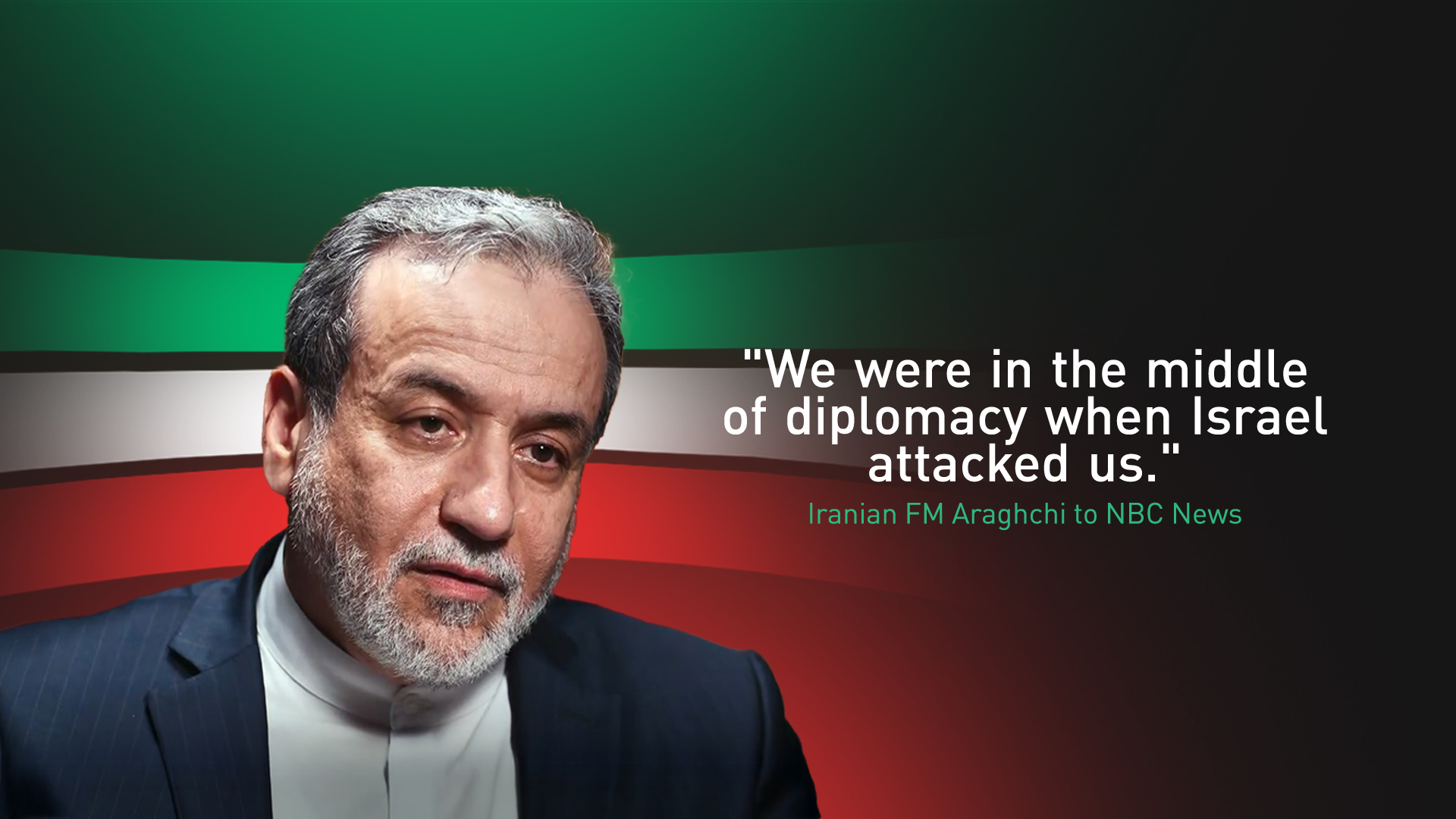'What They Did Was Betrayal to Diplomacy,' Iran's FM Tells NBC
Iran FM Araghchi told NBC that U.S. diplomacy is a cover for Israeli attacks and warned Tehran will retaliate if the U.S. joins the war. He defended Iran’s actions as self-defense, denied intentionally targeting a hospital, and cast doubt on returning to talks.

By Kamaran Aziz
ERBIL (Kurdistan24) — In an exclusive interview with NBC News' Andrea Mitchell, Iran's Foreign Minister Abbas Araghchi defended Iran's recent retaliatory attacks against Israel, questioned the credibility of American diplomacy, and emphasized Iran's resolve to defend itself against aggression. The interview, aired on June 21, 2025, offered a rare and comprehensive insight into Tehran's position amid the intensifying military conflict involving Israel and growing tensions with the United States.
When asked whether diplomacy could produce a solution in the two-week window proposed by the United States, Araghchi cast doubt on Washington's intentions: "Well, I think, it's up to, you know, Americans, The United States, I mean, to show their determination for going for a negotiated solution. Or they have something else in their mind, and they want to attack Iran anyway."
He accused the U.S. of using diplomacy as a smokescreen for Israeli attacks. "If they want diplomacy, we were in the middle of diplomacy when Israel attacked us. And to be honest with you, we have come to the conclusion that negotiations by the US was in fact a cover for what Israelis did... What they did was, in fact, a betrayal to diplomacy."
Addressing the possibility of Iranian retaliation against American targets, Araghchi insisted Iran was acting within the bounds of international law. "When there is a war, both sides attack each other. That that's quite understandable. And self defense is, a legitimate right of every country. What we are doing right now is only exercising our right of self defense."
He warned that if the U.S. joins Israel in its attacks, "we will do the same. We actually retaliate, in, as a form of self defense. I think if Americans are serious to go back to diplomacy, what it needs is only a telephone call from Washington to Tel Aviv to stop everything."
Araghchi stopped short of confirming Iran would return to the negotiating table even if hostilities ceased. "I cannot say 100% that we go back to negotiations because it doesn't—it's meaningless. They've attacked us. They have killed our people. And then when they stop, we consider as if nothing has happened and we go back?"
Mitchell pressed him on the possibility of a ceasefire or pause to allow diplomacy to resume. Araghchi responded, "Diplomacy can take over only when the aggression is stopped."
Asked if he trusted U.S. Special Envoy Witkoff, Araghchi expressed disappointment. "Well, I tried to trust him at the beginning... But unfortunately, he changed his words every time we met. So maybe that was because he couldn't deliver what he promised to us in Washington."
Araghchi criticized Western silence over Israeli operations against Iran. "Attacking a nuclear facility is an unforgivable violation of international law... There is no red line that Israeli regime has not crossed."
When asked about Iran's strike that reportedly damaged a hospital, Araghchi denied intentional targeting. "We didn't attack the hospital. We attacked a military center next to the hospital... the hospital was a military hospital... there was collateral damages to the hospital."
"We have never targeted them. It was a collateral damage. We have been very careful. We only targeted military, you know, locations," he said, while accusing Israel of far more devastating civilian attacks in Gaza.
"They have killed more than 400, innocent civilians, including, you know, women and children. We have not done that yet. We have only targeted military and economic facilities. There has been perhaps some collateral damages, which is unfortunate."
In closing, Araghchi offered a message of resilience to the United States: "I hope [President Trump] understands, Iranians, and our pride and dignity. We are a great nation. We are the cradle of civilization... The nuclear technology is something that we have achieved ourselves... The technology cannot be reversed, cannot be destroyed by bombs."
